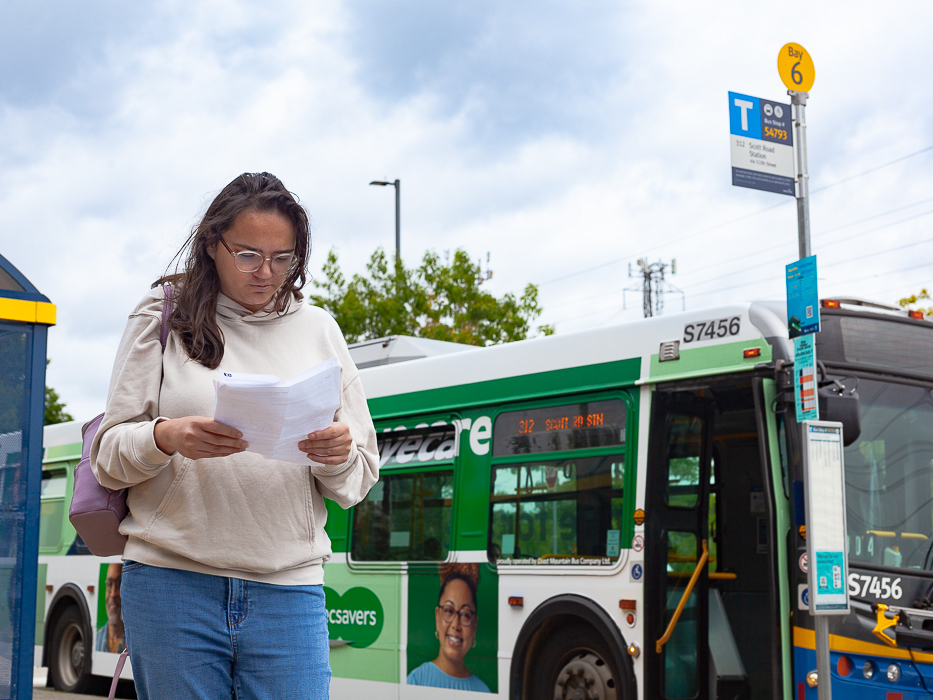The results of Metro Vancouver’s most recent homeless count were just released, and the past three years have seen a 32 per cent increase. This is the largest spike in unsheltered people recorded since 2005.
According to the report, approximately eight per cent of those counted are under the age of 25, and a third of this population has aged out of the foster care system.
However, for each young person counted, as many as three are not recorded because they experience “hidden homelessness” — couch-surfing temporarily with friends, family members or even strangers because they have no other option.
Does the City of Vancouver have a plan to address youth homelessness? The answer appears to be no.
In July, city council rejected an appeal to renew the leases for the 750 temporary modular homes that have served as a cornerstone of the city’s previous response to homelessness for both young people and adults.
Vancouver’s youth-specific housing programs are already operating at near full capacity, and wait-lists are growing by up to five young people per day. Youth often wait years for vacancies in the city’s affordable and supportive housing programs.
Currently the Housing Vancouver strategy (the city’s 10-year housing plan) acknowledges that youth are at an increased risk of homelessness.
But it contains no measures or housing targets earmarked specifically for youth.
Limited rights and no sense of home
Recently, a group of young people with experience of unstable housing, homelessness and substance use collaborated with university researchers at the BC Centre on Substance Use and the University of British Columbia to host a youth housing summit.
The summit took place on Oct. 11 and 12 and brought together approximately 100 young people from all over Metro Vancouver who are currently living in unstable housing or are experiencing homelessness.
Youth summit participants made it clear that there is a lack of specialized housing for young people, especially for those who actively use drugs, are in recovery or have complex mental health needs.
Those who have been able to find housing told us that they have had to follow restrictive policies that contradict the sense of home young people are looking for.
For example, many youth housing services do not allow partners or friends to stay overnight. Since most youth housing is not protected under B.C.’s Residential Tenancy Act, building staff often enter young people’s units without permission.
Youth feel like their already limited rights are being eroded.
Youth summit participants also noted the majority of youth housing programs are for those under 25.
Many are worried about what happens next when they age out of these programs and are again at risk of homelessness.
We need a real plan that centres youth voices
Efforts to address youth homelessness are urgently needed, and the City of Vancouver needs to create a tangible action plan for addressing youth homelessness and unstable housing.
The city should fund the creation of a youth housing committee that will leverage young people’s diverse voices and expertise to advise on this plan. Youth should also have a say in the development of housing services and adjacent programs (like mental health and substance use care and work and education programs) that young people deserve and desire.
Crucially, Vancouver’s housing plan should reflect a people-centred continuum of care. This means that programs and services for young people need to be connected to individuals and not to the places where they live.
Developing a people-centred continuum of care also means fostering an integrated, co-ordinated framework for providing various supports, so that as young people move between housing and other residential settings such as treatment beds, recovery houses and criminal justice settings, they will not risk entering or re-entering homelessness.
The city’s plan must address the ways that other systems, like the foster care and criminal justice systems, often open pathways into homelessness. These systems need to co-ordinate with housing services to ensure that no one “ages out” or is released into homelessness.
All housing programs for young people should be supportive. All housing for youth should include programming that facilitates access to meaningful work and educational opportunities, helps to foster financial literacy and other crucial life skills and builds connections to community and culture.
We asked young people at the housing summit event what it is like to experience unstable housing in Vancouver.
In response, a 22-year-old who currently lives in a youth shelter told us, “It’s like they want us off the streets, but they don’t want us in real homes.”
Let’s be clear: addressing youth homelessness before the next count is not only about providing shelter. It is about collaborating with young people to create the real homes they so deeply desire.
Daniel Manson is a post-doctoral fellow in the University of British Columbia faculty of medicine.
Shane Douglas and Mazal Jensen are members of the Youth Health Advisory Council at the BC Centre on Substance Use.
Trevor Goodyear and Cameron Eekhoudt are UBC PhD candidates, and Monique Sandhu is a recent UBC master’s graduate.
Christian Barborini and Sophie McKenzie are research co-ordinators within the Youth Health research program at BCCSU.
Danya Fast is a professor in the UBC faculty of medicine and a research scientist at BCCSU.
With contributions from members of the Youth Health Advisory Council. ![]()
Read more: Rights + Justice, BC Politics, Housing, Municipal Politics
















Tyee Commenting Guidelines
Comments that violate guidelines risk being deleted, and violations may result in a temporary or permanent user ban. Maintain the spirit of good conversation to stay in the discussion and be patient with moderators. Comments are reviewed regularly but not in real time.
Do:
Do not: